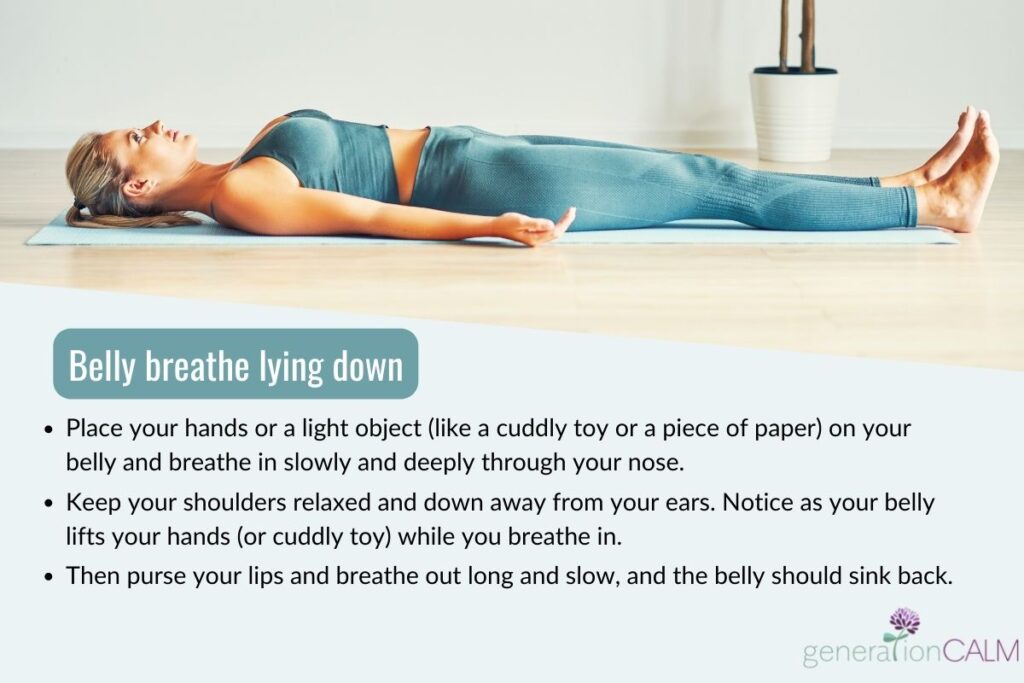What To Do When Breathing Exercises Make Me Dizzy!
and has a way of conditioning you to breathe short and fast.
It’s not a conscious response, but it happens to prepare your body for action. If you’re often anxious, this will probably be your usual way of . If your gets super-fast and shallow, as sometimes happens in a , you can hyperventilate. So when you see a therapist, they’ll often teach you . This is so that you can get used to consciously changing your when you’re in a scary situation. It will lower your and calm your body and mind.
Why do give me ?
When you attempt to change your , like when you try , there’s a change in your body’s physiology. This change can temporarily make you feel a little light-headed which you may interpret as dangerous. But it’s not.
If you already have (like health or ) you may assume the is due to something terrible and can make you feel more anxious. It feeds into the cycle of worry.
Again, it’s not dangerous, but it’s a sign you should be more gentle with yourself. You don’t have to force yourself to change the way you breathe naturally. It would be like someone telling you to walk pigeon toed. It would probably feel very unnatural to you and you may even trip up a few times. But you would soon get used to walking a different way. The same with learning to breathe. It will feel unnatural at first, especially if you’re used to .
How to do so they don’t make you dizzy
Some such as are so different to the normal that it can lead to . D is not some rite of passage you have to go through when learning breathing techniques. So here are some tips to prevent that dizzy feeling.
1. Many people get anxious about being . Therefore, I recommend starting slow at first until you build up to a greater length of time.
In most of my meditations, I suggest doing just two deeper breaths before returning to your normal pattern. That’s enough for you to get the relaxing benefits before sets in. Once you’ve done that, try doubling it to four breaths. Until eventually you can breathe for up to a minute. But it’s not a competition, set your own pace.
Learning how to take a down into your is not meant to replace the way you breathe all day long. So you are not failing if you go back to your normal, regular pattern.
2. If you try and it still doesn’t feel comfortable, try slowing down your instead. Breathe in for a count of four and for a count of six. Notice I say a count and not seconds. It’s important to go at your preferred pace. But out for longer than your inhale will calm your body, without having to concentrate on anything else.
3. When you first try a new , you might feel more comfortable to lie down, either on a mat, the floor or a bed. This is particularly helpful for practicing because you’ll notice your moving in and out. Place your hands or a light object (like a cuddly toy or a piece of paper) on your and breathe in slowly and deeply through your nose. Keep your shoulders relaxed and down away from your ears. Notice as your lifts your hands (or cuddly toy) while you breathe in. Then purse your lips and breathe out long and slow, and the should sink back.

4. If is still too difficult, take a deep sigh instead. This helps to relax and reset your . (Kristin Linklater’s book on Freeing The Natural Voice recommends sighing to relax).
5. If you’re not ready to change your yet, just start by noticing how you breathe when you’re relaxed compared to when you are stressed. It’s an unconscious response your body makes, but by bringing it to the forefront of your mind, it will help you to be more mindful of your . You’ll eventually be able to slow it down without feeling dizzy or light headed.
Conclusion
is a powerful way to calm your body when you’re feeling anxious. And it is also beneficial for constipation, IBS, insomnia and improving snoring. So it’s an important improvement to make for your overall health and well-being.
When we first start learning how to meditate or do , it’s normal to be tempted to force the . We think, “I want to get relaxed more quickly!”
But don’t force it. You want to learn proper in a calm, comfortable environment or right before bed.
When you attempt to change your , there’s a change in your body’s physiology. This change can make you feel a little light-headed which often can make you feel like it’s dangerous. But it’s not dangerous. It’s just different. So take it slow and make changes gradually.
If you like this blog post, you’ll enjoy being part of my fortnightly newsletter. You can sign up to the right, to the right ➡➡

